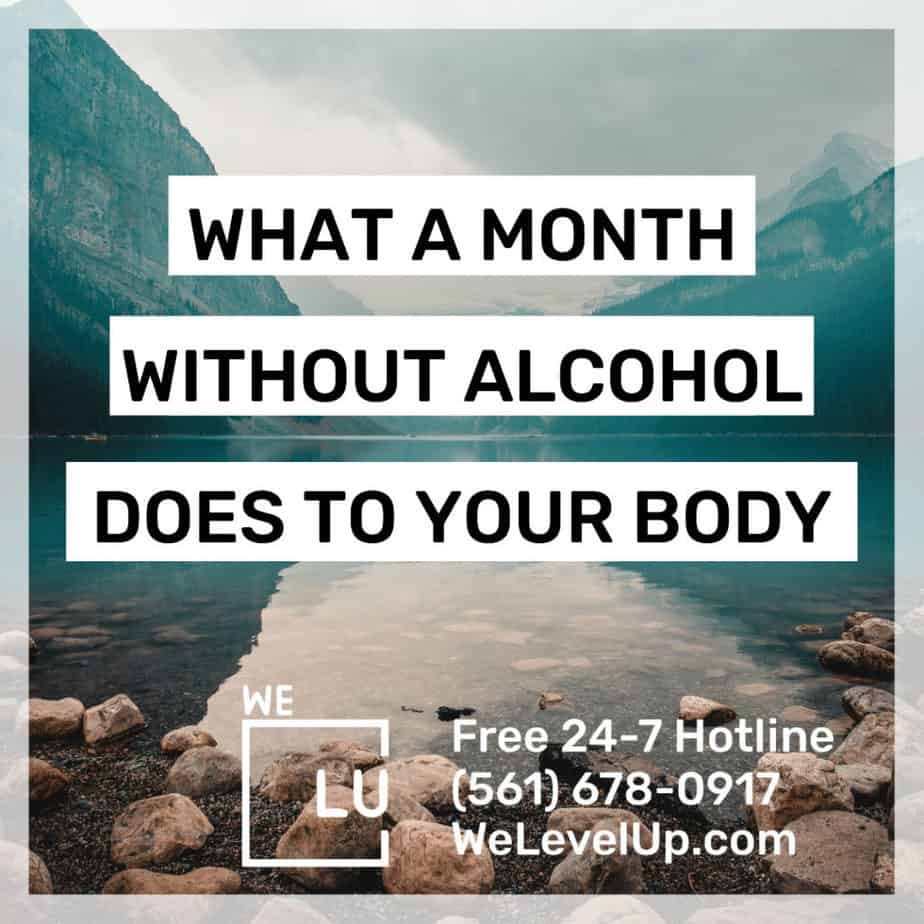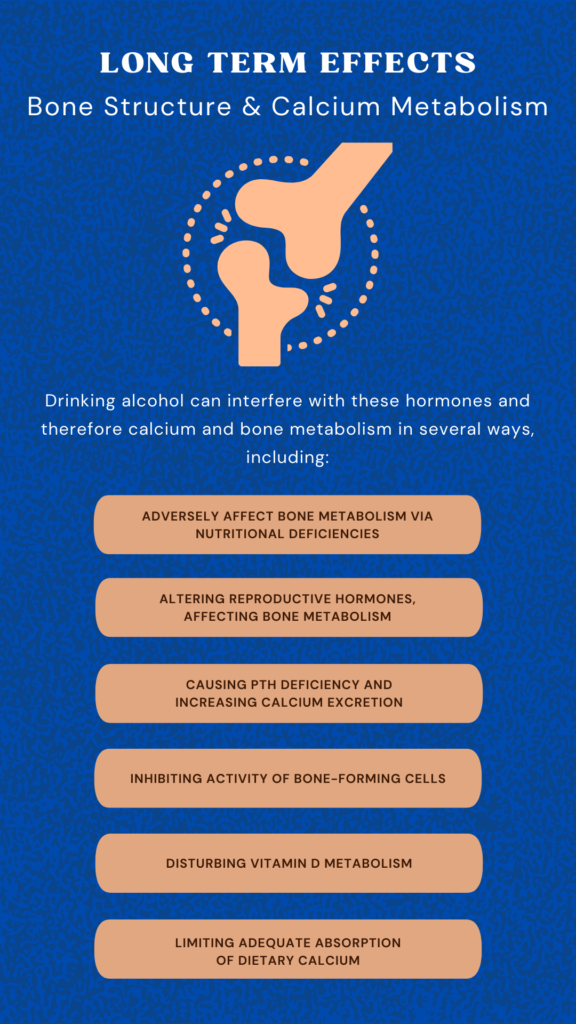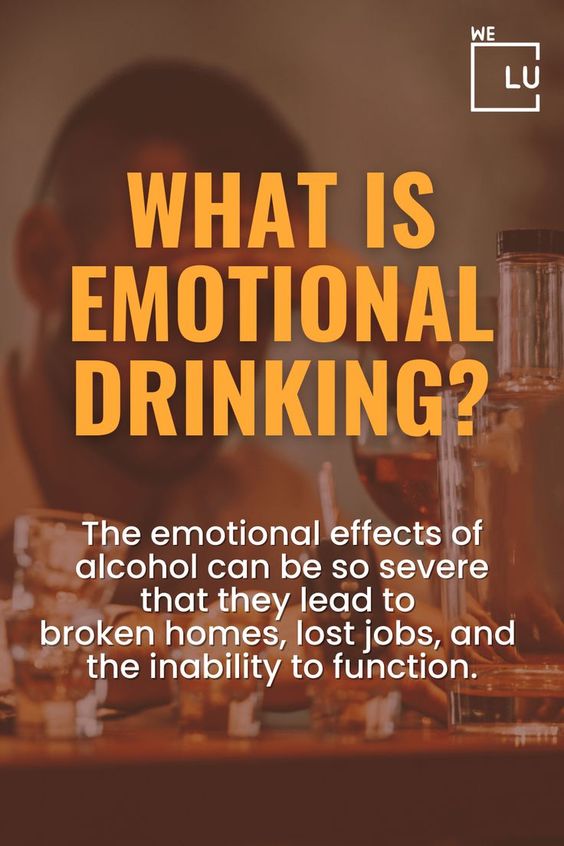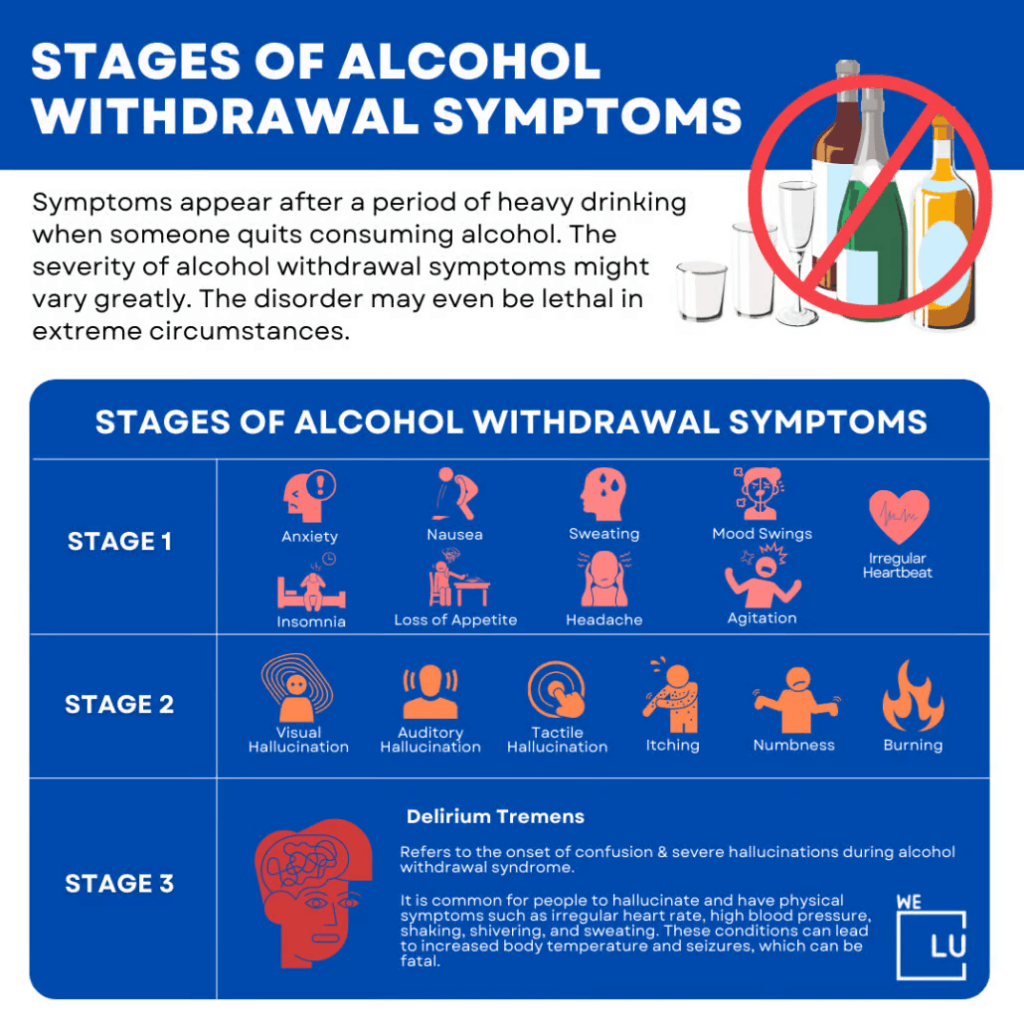What Does Alcohol Do To Your Body?
Alcohol is a psychoactive substance that can have short-term and long-term effects on the human body. It is a central nervous system depressant that slows down parts of the brain and results in impaired cognitive function. Some people may experience relaxation and a temporary euphoria when consumed in moderation. However, excessive or prolonged alcohol use can lead to many damaging health consequences.
Alcoholism seriously damages our physical and mental health, which can be permanent. That’s why quitting drinking can provide multiple benefits to our bodies and help us to overcome those tricky situations we may find ourselves in.
What Does Drinking Alcohol Do To Your Body?
Alcohol affects the body as a central nervous system depressant, leading to impaired cognitive function, reduced coordination, and memory deficits. Alcohol consumption poses significant health risks, and moderation is crucial to avoid the detrimental effects on the body. Above all, our bodies will significantly benefit when we abstain from alcohol consumption.
Effects Of Alcohol On The Body Immune System
Alcohol weakens the immune system by impairing the production and function of immune cells, leaving the body more vulnerable to infections and diseases. Chronic alcohol use can increase susceptibility to respiratory infections, pneumonia, and other illnesses. Weakened immunity may also hinder the body’s ability to fight off infections, leading to more severe and prolonged conditions.
How Does Alcohol Affect The Skeletal System?
Excessive alcohol consumption can negatively impact the skeletal system in several ways. Alcohol interferes with calcium and vitamin D balance, reducing bone density and an increased risk of osteoporosis, making bones more prone to fractures. Moreover, alcohol can impair the body’s ability to repair and regenerate bone tissue, further contributing to skeletal health deterioration.
How Does Alcohol Affect The Reproductive System?
Alcohol can disrupt the average hormonal balance in both men and women, leading to reproductive issues.
In men, excessive alcohol consumption can lower testosterone levels, cause erectile dysfunction, and reduce sperm quality and production.
In women, heavy drinking can disrupt the menstrual cycle, lead to fertility problems, increase the risk of miscarriage, and potentially harm the developing fetus during pregnancy.
Alcohol Effects On Body Digestive System
Alcohol can irritate the lining of the stomach and intestines, leading to gastritis, ulcers, and gastrointestinal bleeding. Long-term alcohol abuse may also damage the pancreas, resulting in pancreatitis, a painful inflammation that can interfere with proper digestion and nutrient absorption. Furthermore, excessive alcohol intake can contribute to malnutrition due to poor dietary choices and impaired nutrient metabolism within the digestive system.
Alcohol’s Effect On The Circulatory System
Alcohol can have both short-term and long-term effects on the circulatory system. In the short term, it can cause temporary dilation of blood vessels, leading to feelings of warmth and skin flushing.
However, long-term excessive alcohol consumption can result in high blood pressure, irregular heart rhythms, weakened heart muscle, and an increased risk of cardiovascular diseases such as heart attacks and strokes.
How Does Alcohol Affect The Excretory System?
Alcohol affects the excretory system primarily by increasing urine production and promoting dehydration. It does this by inhibiting the release of a vasopressin hormone, which usually helps the kidneys reabsorb water. As a result, frequent urination while drinking can lead to dehydration and electrolyte imbalances, putting additional strain on the kidneys and potentially leading to kidney problems over time.
How Does Alcohol Affect The Brain and Central Nervous System?
Alcohol is a central nervous system depressant that slows down brain activity, leading to impaired cognitive functions, reduced reaction times, and poor coordination. It enhances the effects of the inhibitory neurotransmitter GABA, causing feelings of relaxation and sedation.
However, chronic and excessive alcohol use can damage brain cells and neurotransmitter systems, resulting in long-term cognitive deficits, memory problems, and an increased risk of developing alcohol-related neurological disorders.

Skip To:
Learn More:
- Alcohol and Breastfeeding Guidelines. Alcohol in Breastmilk Dangers. How Long Does Alcohol Stay In Breastmilk? Breastfeeding and Drinking Alcohol Chart. Breastmilk Alcohol Calculator.
- Emotional Effects of Alcohol
- Effects of Alcohol on the Endocrine System
- The Effects of Alcohol and Diabetes Type 2
- Alcoholic Wet Brain Symptoms, Wernicke-Korsakoff Syndrome/Wet Brain Syndrome Meaning, Stages, Effects & Treatment.
- Alcohol Detox Timeline & How To Safely Manage Alcohol Withdrawal Symptoms Treatment
- How Long Does Alcohol Stay in Urine? How Long Does Alcohol Stay in the Body? How Long Can Alcohol Be Detected in Urine EtG Alcohol Test? Urine Alcohol Testing Chart. Interpreting Urine Alcohol Testing Results.
- How to Flush Alcohol Out of Your System?
- Calculator for Blood Alcohol Concentration (BAC). Find out What Your BAC Is. BAC Levels For Men & Women. How Should BAC Be Managed? Drunkenness Calculator.
How Does Your Body Change After A Month Without Alcohol?
When you quit drinking, your body can begin to heal and recover from the harmful effects of alcohol. By abstaining from alcohol, you give your organs, particularly the liver and cardiovascular system, a chance to repair and function more optimally. Moreover, quitting alcohol allows you to make healthier lifestyle choices, such as engaging in regular exercise, eating a balanced diet, and managing stress effectively, further contributing to a healthier and more fulfilling life.
Taking a break from alcohol for a month can positively affect your body and overall well-being. Here are some potential benefits you may have experienced without the effects of alcohol on the body:
- Improved Liver Health: Giving your liver a break from processing alcohol allows it to detoxify and recover, leading to improved liver function and reduced risk of liver-related diseases.
- Better Sleep: Abstaining from alcohol can improve sleep patterns and quality, as alcohol disrupts sleep architecture.
- Enhanced Mental Clarity: Your cognitive function may have improved, leading to better focus, memory, and overall mental clarity.
- Increased Energy Levels: Without alcohol’s depressant effects, you might have experienced higher energy levels and increased productivity.
- Weight Management: Cutting out the calories from alcohol can contribute to weight loss or maintenance, depending on your overall diet and lifestyle.
- Hydration: Your body may be better hydrated without alcohol’s diuretic effects, leading to healthier skin and improved overall well-being.
- Mood Stability: Reducing or eliminating alcohol consumption can lead to more stable moods and improved emotional well-being.
- Financial Savings: You might have saved money by not spending on alcoholic beverages.
What does 3 weeks without alcohol do to your body? You may notice improved sleep patterns and overall energy levels within the first few days of abstinence. Alcohol disrupts sleep, and abstaining allows your body to have more restful sleep, leading to increased alertness during the day.

What happens to your body after 10 days no alcohol? After 10 days of not consuming alcohol, several positive changes can occur in your body. Here’s a list of some of the potential effects:
- Improved sleep.
- Hydration.
- Weight loss.
- Better skin.
- Liver function.
- Mental clarity.
- Mood improvement.
- Reduced risk of accidents.
- Lower blood pressure.
- Increased exercise performance.
After three weeks without alcohol, your body may experience several positive changes. Here’s a list of potential effects:
- Improved liver function.
- Better sleep.
- Weight loss.
- Mental clarity.
- Enhanced mood.
- Healthier skin.
- Lower blood pressure.
- Reduced risk of accidents.
- Enhanced immune system.
- Increased exercise performance.
- Better digestion.
- Clearer eyes.
After 90 days of not consuming alcohol, your body may experience significant improvements and changes. Here’s a list of potential effects:
- Liver regeneration.
- Reduced inflammation.
- Weight loss and healthier skin.
- Improved sleep patterns.
- Mental clarity and focus.
- Enhanced immune system.
- Lower blood pressure.
- Better digestive health.
- Reduced risk of chronic diseases.
- Improved mood and reduced anxiety.
- Increased energy and physical performance.
- Clearer eyes and reduced eye irritation.
Before and After Quitting Drinking Facts
What Happens To Your Body When You Stop Drinking Alcohol?
Quitting alcohol can lead to several positive physical changes in your body. It can improve liver health as your liver gets a chance to heal and regenerate, reducing the risk of liver diseases such as cirrhosis and fatty liver.
Furthermore, your cardiovascular system may benefit from lower blood pressure and improved heart health, reducing the risk of heart disease and stroke.
Quitting alcohol can lead to better sleep patterns and increased energy levels, contributing to overall well-being and improved immune system function. Without the diuretic effects of alcohol, your body can maintain better hydration, benefiting your skin and overall appearance.
How long alcohol stays in body? The time alcohol stays in the body can vary based on several factors, including the amount consumed, individual metabolism, and liver function.
However, it can take several hours or longer for alcohol to be eliminated from the system, depending on the individual and the amount consumed. Sometimes, alcohol may still be detectable in urine and breath tests for up to 24 hours after the last drink.

Quitting Drinking Cold Turkey
Quitting drinking “cold turkey” means abruptly stopping alcohol consumption without gradually reducing intake. When quitting cold turkey, individuals may experience alcohol withdrawal symptoms, which can range from mild to severe, depending on the level of alcohol dependence. In extreme cases, symptoms may include anxiety, tremors, sweating, nausea, vomiting, and seizures.
It’s essential for individuals considering quitting cold turkey to be aware of the potential risks and seek professional medical advice and support. Medical supervision can help manage withdrawal symptoms and ensure a safer and more successful alcohol cessation process.
A gradual tapering approach or entering a medically supervised detox program may be recommended for heavy or long-term drinkers to minimize the risks associated with sudden alcohol withdrawal.

Get Your Life Back
Find Hope & Recovery. Get Safe Comfortable Detox, Addiction Rehab & Dual Diagnosis High-Quality Care.
Hotline(844) 597-1011Alcohol Effects On The Body Statistics
According to the Centers for Disease Control and Prevention (CDC), roughly 95,000 people die from alcohol-related causes annually in the United States.
Alcohol-related healthcare costs in the US are substantial, including expenses related to hospitalizations, treatment for alcohol use disorders, and medical complications. Also, alcohol misuse can lead to a range of social problems, including impaired productivity in the workplace, family disruptions, and an increased burden on social welfare systems.
42%
Alcohol-related liver disease accounted for around 42% of liver disease-related deaths in the US in 2019.
Source: NIAAA
29%
During the same year, alcohol-impaired driving accounted for about 29% of all traffic-related fatalities in the US.
Source: NHTSA
55%
Alcohol is a contributing factor in about 55% of domestic violence cases.
Source: WHO
Top 5 Popular Before and After Quit Drinking FAQs
-
How long after quitting drinking should blood pressure decrease?
Blood pressure can decrease within a few days to weeks after quitting drinking, depending on the individual’s alcohol consumption. As the body begins to recover from the effects of alcohol, blood vessels can relax, leading to lower blood pressure levels and reduced strain on the cardiovascular system. However, the timeline can vary, and blood pressure improvements may continue with sustained abstinence from alcohol.
-
How long after quitting drinking does ED go away?
The improvement or resolution of erectile dysfunction (ED) after quitting drinking can vary from person to person. In some cases, significant improvements may be noticed within a few weeks to a few months after abstaining from alcohol as the body begins to repair and restore normal blood flow and hormone levels. However, for individuals with more severe or long-term alcohol-related ED, it may take longer or require additional medical interventions to recover fully.
-
How long after quitting drinking does fertility come back?
The return of fertility after quitting drinking is determined by various factors, including the individual’s overall health, alcohol consumption history, and any underlying fertility issues. In some cases, improvements in fertility may be observed within a few months of sobriety as the body begins to recover from the effects of alcohol on hormone levels and reproductive organs. However, it’s essential for couples struggling with fertility to seek medical advice and support from healthcare professionals to address any underlying concerns.
-
How long does it take alcohol to leave your body?
The time it takes for alcohol to leave the body varies based on the amount consumed, individual metabolism, and liver function. Some consumed alcohol is absorbed into the body through the gastrointestinal tract. Most alcohol absorption occurs in the small intestine, which is absorbed into the bloodstream. From there, it is distributed throughout the body, affecting various organs and systems.
-
How to quit drinking alcohol?
Develop a concrete plan to gradually reduce alcohol consumption or set a quit date, avoid triggers, and engage in healthy activities and coping mechanisms to replace the drinking habit. Professional help, such as counseling or therapy, can also be beneficial in managing alcohol cessation effectively.
Psychological Effects Of Alcohol
Alongside the physical effects of alcohol, it can also have a range of psychological effects on individuals in the short and long term. Some common psychological effects of alcohol include:

- Euphoria and Relaxation: In the short term, alcohol can induce euphoria and relaxation due to its impact on the brain’s reward and pleasure centers. This can lead to reduced inhibitions and increased sociability.
- Impaired Cognitive Function: Alcohol is a central nervous system depressant that impairs cognitive function, leading to decreased concentration, memory lapses, and slower reaction times. This can negatively affect decision-making abilities and increase the risk of accidents and injuries.
- Mood Changes: While some people may experience initial euphoria, alcohol can also lead to mood swings and emotional instability. In the long term, excessive alcohol use can contribute to depression and anxiety disorders.
- Increased Risk-Taking Behavior: Alcohol can lower inhibitions, leading to riskier behavior and poor judgment. This can lead to engaging in dangerous activities or making impulsive decisions with potential consequences.
- Memory and Learning Impairments: Chronic alcohol use can lead to memory problems and difficulty learning and retaining new information. This can significantly impact academic and professional performance.
- Alcohol Use Disorder (AUD): Regular and excessive alcohol consumption can lead to alcohol dependence and addiction, resulting in a compulsive need to drink despite harmful physical and mental health consequences.
- Withdrawal Symptoms: When individuals with alcohol dependence attempt to quit or reduce their drinking, they may experience withdrawal symptoms such as anxiety, irritability, sweating, and sleep disturbances.
- Co-Occurring Mental Health Disorders: Alcohol abuse can exacerbate or trigger underlying mental health conditions, such as depression, anxiety, or bipolar disorder, creating a complex dual diagnosis situation.
Get Help. Get Better. Get Your Life Back.
Searching for Accredited Drug and Alcohol Rehab Centers Near You?
Even if you have failed previously and relapsed, or are in the middle of a difficult crisis, we stand ready to support you. Our trusted behavioral health specialists will not give up on you. When you feel ready or just want someone to speak to about therapy alternatives to change your life call us. Even if we cannot assist you, we will lead you to wherever you can get support. There is no obligation. Call our hotline today.
(844) 597-1011Physical Dependence On Alcohol
Physical alcohol dependence is a condition in which the body becomes reliant on the presence of alcohol to function normally. It develops with regular and heavy alcohol consumption over time. When someone becomes physically dependent on alcohol, their body adapts to its presence, and sudden cessation of drinking can lead to withdrawal symptoms.
Some common signs of physical alcohol dependence include:
- Tolerance.
- Withdrawal symptoms.
- Cravings.
- Loss of control.
Physical alcohol dependence is a severe condition that can significantly impact an individual’s health and well-being. Seeking professional help and support from healthcare providers or addiction specialists is crucial for safely managing alcohol withdrawal and overcoming alcohol dependence. Medically supervised detoxification programs may be necessary to address the physical aspects of alcohol dependence while providing essential support and care during the recovery process.
Top 10 Tips To Quit Drinking
Quitting alcohol without proper guidance can lead to the following withdrawal symptoms, among other physical effects:
- Depression after quitting drinking.
- Fatigue after quitting drinking (or being tired after quitting drinking.)
- Digestive issues after quitting drinking.
Quitting drinking is a journey, and facing challenges is normal. Be patient with yourself and seek professional help if needed. Celebrate each step towards a healthier and alcohol-free life.
- Set Clear Goals: Define your reasons for quitting drinking and set specific, achievable goals. Write them down and refer to them regularly for motivation.
- Seek Support: Reach out to friends, family, or support groups to share your decision and seek encouragement and understanding throughout your journey.
- Identify Triggers: Recognize the situations, emotions, or places that trigger the urge to drink and develop coping strategies to deal with them effectively.
- Gradual Reduction: If quitting cold turkey seems too challenging, gradually reduce your alcohol intake until you can stop completely.
- Find Healthy Alternatives: Replace drinking with positive activities like exercising, pursuing hobbies, practicing mindfulness, or spending time with loved ones.
- Avoid Temptation: Clear your home of alcohol and avoid environments where alcohol is readily available to minimize the temptation to drink.
- Stay Busy: Keep yourself occupied with activities that keep your mind engaged and help distract you from thoughts of drinking.
- Practice Self-Care: Prioritize self-care and focus on improving your physical and mental well-being through adequate sleep, healthy eating, and stress-reduction techniques.
- Professional Help: Consider seeking guidance from a therapist, counselor, or addiction specialist who can provide personalized support and strategies for quitting alcohol.
- Celebrate Milestones: Acknowledge and celebrate your progress, no matter how small, to reinforce your commitment to quitting and boost your confidence in staying alcohol-free.

Quitting drinking can be a positive and life-changing decision, but it’s essential to be aware that some individuals may experience withdrawal symptoms without proper guidance and support. These symptoms can range from mild to severe and can be challenging to manage without professional assistance. Seeking help from healthcare providers, addiction specialists, or support groups can significantly assist in safely navigating the withdrawal process and ensuring a smoother and more successful alcohol cessation journey.
Stages Of Alcohol Withdrawal Symptoms Infographic
When you stop drinking alcohol, your body changes in a few days. Within the first 24 hours, you may experience symptoms of alcohol withdrawal, including anxiety, tremors, irritability, and even nausea and vomiting in severe cases. However, these symptoms tend to subside within a few days as the body begins to detoxify.
Embed the below “Stages of Alcohol Withdrawal Symptoms” Infographic to your Website. This infographic is provided by the We Level Up addiction treatment center team. To use the below infographics, you agree to link back and attribute its source and owner at https://welevelup.com/addiction/what-does-alcohol-do-to-your-body/
Stages of Alcohol Withdrawal Symptoms Infographic image link: https://welevelup.com/wp-content/uploads/2023/03/Stages-Of-Alcohol-Withdrawal-Timeline-1-1030×1030-1-1024×1024.png

First-class Facilities & Amenities
World-class High-Quality Addiction & Mental Health Rehabilitation Treatment
Rehab Centers TourRenowned Addiction Centers. Serene Private Facilities. Inpatient rehab programs vary.
Addiction Helpline(844) 597-1011Proven recovery success experience, backed by a Team w/ History of:
15+
Years of Unified Experience
100s
5-Star Reviews Across Our Centers
10K
Recovery Success Stories Across Our Network
- Low Patient to Therapist Ratio
- Onsite Medical Detox Center
- Comprehensive Dual-Diagnosis Treatment
- Complimentary Family & Alumni Programs
- Coaching, Recovery & Personal Development Events
How Do You Cleanse Your Body From Alcohol?
How to detox your body from alcohol? If you want to cleanse your body from alcohol, seeking professional help and support is highly recommended. Consider reaching out to a healthcare provider, addiction specialist, or counselor who can guide you through the process safely and effectively. They can create a personalized plan tailored to your needs, provide medical supervision during the detoxification process, and offer emotional support to address any challenges or cravings that may arise. Remember that alcohol detox can be challenging, and having a supportive and knowledgeable team can significantly increase your chances of a successful and sustainable recovery.

Finding Treatment For Alcoholism
Alcohol is a chemical substance that triggers the release of dopamine and endorphins, creating sensations of pleasure, pain relief, and contentment. This rewarding effect can lead to a sense of gratification. Moreover, long-term heavy alcohol consumption can bring about structural changes in the brain, fostering dependency and cravings. Ultimately, alcohol proves addictive at both a physiological and psychological level.
Alcohol addiction can be identified by two primary signs: tolerance and withdrawal. The body develops tolerance with continued exposure, requiring higher alcohol intake to achieve the desired effects. Additionally, withdrawal becomes evident when alcohol intake stops, leading to physical symptoms like stress, anxiety, accelerated heart rate, disorientation, nausea, and insomnia. If someone experiences these symptoms but continues to drink to alleviate discomfort, it indicates a need for help and support.
Individuals who have struggled with long-term and heavy alcohol use often endure more severe withdrawal symptoms during detox, making it a challenging journey. Proper care and constant attention are crucial to managing these symptoms effectively. Delirium Tremens, a severe complication of alcohol withdrawal, can be life-threatening if not promptly and well handled. Seeking alcohol addiction treatment is essential for a comfortable and safe recovery.
If you, a friend, or a family member need help with alcoholism, contact us today at We Level Up.
World-class, Accredited, 5-Star Reviewed, Effective Addiction & Mental Health Programs. Complete Behavioral Health Inpatient Rehab, Detox plus Co-occuring Disorders Therapy.
CALL(844) 597-1011End the Addiction Pain. End the Emotional Rollercoaster. Get Your Life Back. Start Drug, Alcohol & Dual Diagnosis Mental Health Treatment Now. Get Free No-obligation Guidance by Substance Abuse Specialists Who Understand Addiction & Mental Health Recovery & Know How to Help.
Top 7 How Does Alcohol Affect The Body? FAQs
-
What does alcoholism do to your body?
Alcoholism, or alcohol addiction, takes a severe toll on the body. Prolonged alcohol abuse can lead to liver damage, cardiovascular issues, digestive problems, weakened immune system, neurological disorders, and increased risk of cancer, among other health complications, significantly impacting overall physical and mental well-being.
-
What does alcohol do to your body long term?
Long-term alcohol consumption can lead to chronic health problems, including liver cirrhosis, alcoholic hepatitis, cardiovascular diseases, pancreatitis, neurological disorders, and an increased risk of certain cancers. It can also cause cognitive impairments, memory loss, and psychological issues, negatively affecting overall quality of life and potentially leading to life-threatening conditions.
-
How long does alcohol stay in your body?
The time alcohol stays in the body varies based on several factors, including the amount consumed, individual metabolism, and liver function. On average, it takes about one hour for the body to metabolize one standard drink of alcohol. However, it can take several hours or longer for alcohol to leave the body system, depending on the individual and the amount consumed.
-
What are the concerns about female alcoholic body shape?
One of the main concerns about female alcoholic body shape is the development of an “alcohol belly” or “beer belly,” characterized by excess abdominal fat due to the high-calorie content in alcoholic beverages. Moreover, chronic alcohol abuse can lead to weight gain and changes in body composition, contributing to overall health issues and an increased risk of obesity-related conditions.
-
Does alcohol warm the body?
Alcohol can create a sensation of warmth in the body because it causes blood vessels to dilate, leading to increased blood flow near the skin’s surface. However, this effect is temporary and can lead to increased heat loss, potentially putting individuals at risk of hypothermia in cold environments despite initially feeling warm.
-
Will you have weight loss after quitting drinking?
Quit drinking lose weight. It is possible for some individuals. Alcohol is high in calories, and excessive consumption can lead to weight gain. By eliminating or reducing alcohol intake, coupled with a balanced diet and regular exercise, some people may experience weight loss. However, individual results may vary based on diet, activity level, and metabolism.
-
What happens to your body when you quit drinking?
When you quit drinking, your body undergoes several positive changes. The liver can begin to repair itself, leading to improved liver function and reduced risk of liver diseases. Additionally, your sleep patterns may improve, cognitive function can become more apparent, and you may experience increased energy levels and overall better physical and mental health.
What Does Alcohol Do To Your Body? | Top 5 Benefits of Quitting Drinking
Do you know what a month without alcohol does to your body? Quitting drinking can provide multiple benefits to our bodies. It can help us overcome difficult circumstances we may find ourselves in. Get the help you deserve. Watch the video below to find out more.
If you or a loved one is struggling with alcohol or other substance use disorder(s), call for a FREE consultation 24/7 at (561) 678-0917
Get FREE addiction treatment insurance check – https://welevelup.com/rehab-insurance/
Experience Transformative Recovery at We Level Up Treatment Centers.
See our authentic success stories. Get inspired. Get the help you deserve.
Start a New Life
Begin with a free call to an addiction & behavioral health treatment advisor. Learn more about our dual-diagnosis programs. The We Level Up Treatment Center Network delivers recovery programs that vary by each treatment facility. Call to learn more.
- Personalized Care
- Caring Accountable Staff
- World-class Amenities
- Licensed & Accredited
- Renowned w/ 100s 5-Star Reviews
We’ll Call You
Search We Level Up What Does Alcohol Do To Your Body? Alcohol Detox, Mental Health Topics & Resources
Sources
[1] Paton A. Alcohol in the body. BMJ. 2005 Jan 8;330(7482):85-7. Doi 10.1136/bmj.330.7482.85. PMID: 15637372; PMCID: PMC543875. What Does Alcohol Do To Your Body? Alcohol Effects on Body Related Topic.
[2] Rehm J. The risks associated with alcohol use and alcoholism. Alcohol Res Health. 2011;34(2):135-43. PMID: 22330211; PMCID: PMC3307043. What Does Alcohol Do To Your Body? Alcohol Effects on Body Related Topic.
[3] Health risks and benefits of alcohol consumption. Alcohol Res Health. 2000;24(1):5-11. PMID: 11199274; PMCID: PMC6713002. What Does Alcohol Do To Your Body? Alcohol Effects on Body Related Topic.
[4] Park JE, Ryu Y, Cho SI. The Association Between Health Changes and Cessation of Alcohol Consumption. Alcohol Alcohol. 2017 May 1;52(3):344-350. Doi 10.1093/alcalc/agw089. PMID: 28430927; PMCID: PMC5397877. What Does Alcohol Do To Your Body? Alcohol Effects on Body Related Topic.
[5] Nehring SM, Freeman AM. Alcohol Use Disorder. [Updated 2022 Jul 31]. In: StatPearls [Internet]. Treasure Island (FL): StatPearls Publishing; 2023 Jan-. Available from: https://www.ncbi.nlm.nih.gov/books/NBK436003/
[6] Bode C, Bode JC. Alcohol’s role in gastrointestinal tract disorders. Alcohol Health Res World. 1997;21(1):76-83. PMID: 15706765; PMCID: PMC6826790. What Does Alcohol Do To Your Body? Alcohol Effects on Body Related Topic.
[7] Bishehsari F, Magno E, Swanson G, Desai V, Voigt RM, Forsyth CB, Keshavarzian A. Alcohol and Gut-Derived Inflammation. Alcohol Res. 2017;38(2):163-171. PMID: 28988571; PMCID: PMC5513683.
[8] Traversy G, Chaput JP. Alcohol Consumption and Obesity: An Update. Curr Obes Rep. 2015 Mar;4(1):122-30. Doi 10.1007/s13679-014-0129-4. PMID: 25741455; PMCID: PMC4338356.
[9] Suter PM. Is alcohol consumption a risk factor for weight gain and obesity? Crit Rev Clin Lab Sci. 2005;42(3):197-227. Doi 10.1080/10408360590913542. PMID: 16047538. What Does Alcohol Do To Your Body? Alcohol Effects on Body Related Topic.
[10] Arackal BS, Benegal V. Prevalence of sexual dysfunction in male subjects with alcohol dependence. Indian J Psychiatry. 2007 Apr;49(2):109-12. Doi 10.4103/0019-5545.33257. PMID: 20711392; PMCID: PMC2917074. What Does Alcohol Do To Your Body? Alcohol Effects on Body Related Topic.


